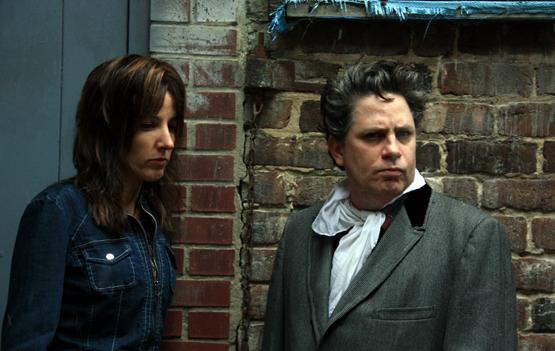Solid Gold is a new blog exploring emerging music that we like.
Videos by American Songwriter
Glasser
When Glasser’s video for “Mirrorage” dropped a few weeks ago, there was a flurry of activity on the internet. (See what the fuss is about here.) But Cameron Mesirow somehow still stood out far above the rest of the indie dream pop acts. There’s a confidence and intensity to her music that seems like it could take down anything in its sightline. It’s hard to make out exactly what Mesirow says when the robot voice takes over about halfway through “Mirrorage,” though it’s clearly meant to be scary. Mirrorage… what is that, anyway? Sounds like something Aleister Crowley would have been into. In any given song, there’s more than one Glasser. Literally, there’s a surround-sound of Mesirow’s own vocal harmonies but there are also the illusions and various guises of Glasser. Ring seems to set up smoke and mirrors for the listeners. Another standout track on Rings is “Home,” with it’s similarly multi-layered, self-harmonized lines.
Rayland Baxter
With the wintertime coming, it’s a good idea to put on Rayland Baxter’s Miscalculation of Song, an EP he released earlier this year. The first three songs will absolutely bring you to your knees. The minute-long “Intro” is a perfect vignette of Storyville piano and clarinet, though you won’t find much in that old-timey vein on the rest of the album. What you will find is a songwriter finding his voice on tunes like “Hoot Owl” and “Woman For Me.” Someone once said that a great actor wasn’t afraid to discover something about himself on stage, in front of the camera or in front of the audience. Baxter falls into the same time-tested tropes of folk songwriting, but he’s so richly compelling it doesn’t matter if he’s standing on the shoulders of giants.
First Aid Kit
Karin Dreijer Andersson, of The Knife and Fever Ray, helped discover First Aid Kit, Swedish sisters Klara and Johanna Söderberg. The fellow Swede has pushed the sisters’ career, releasing their 2008 EP Drunken Trees on her label Rabid Records. But where Andersson traffics in electronics and masks, First Aid Kit seem to take their musical cues from Gillian Welch and David Rawlings, appropriating the “brother teams” harmony style on songs like “In The Morning” from their full-length album, The Big Black & The Blue, released this May. The sisters brand of floaty, ethereal harmonies, anchored by rarely more than an acoustic guitar, is in high style these days – see Mountain Man and Secret Sisters – but their gripping talent, if not their precocity (ages 17 and 19), certainly begs notice.
James Blake
It’s nice to see someone using their real name, even if it is rather plain. How many one-word generality monikers can one really take? Houses, Valleys, Rewards, Health, Kisses. (Of course, don’t be surprised if some of these names do appear in this blog soon.) James Blake, the British producer, was first picked up by the British press (Guardian, Telegraph) when his EP CMYK came out in early 2010. Since then, Pitchfork has dubbed him (‘scuse the pun) an unofficial king of dubstep, the fascinating genre that’s grown out of UK garage and grime. Dubstep is dark and glitchy, but also beautiful and highly melodic like a Skip James’ minor key blues dirge. It’s near mind-blowing to hear all the tiny intricacies Blake crams in to just the first minute of “CMYK.” Add to that a rumored full-length album of actual songs – you know, the ones with chords and lyrics – and Blake destroys typical notions of genre boundaries. For a hint in that direction, check out the video of Blake’s cover of Feist’s “Limit To Your Love” here.

















Leave a Reply
Only members can comment. Become a member. Already a member? Log in.